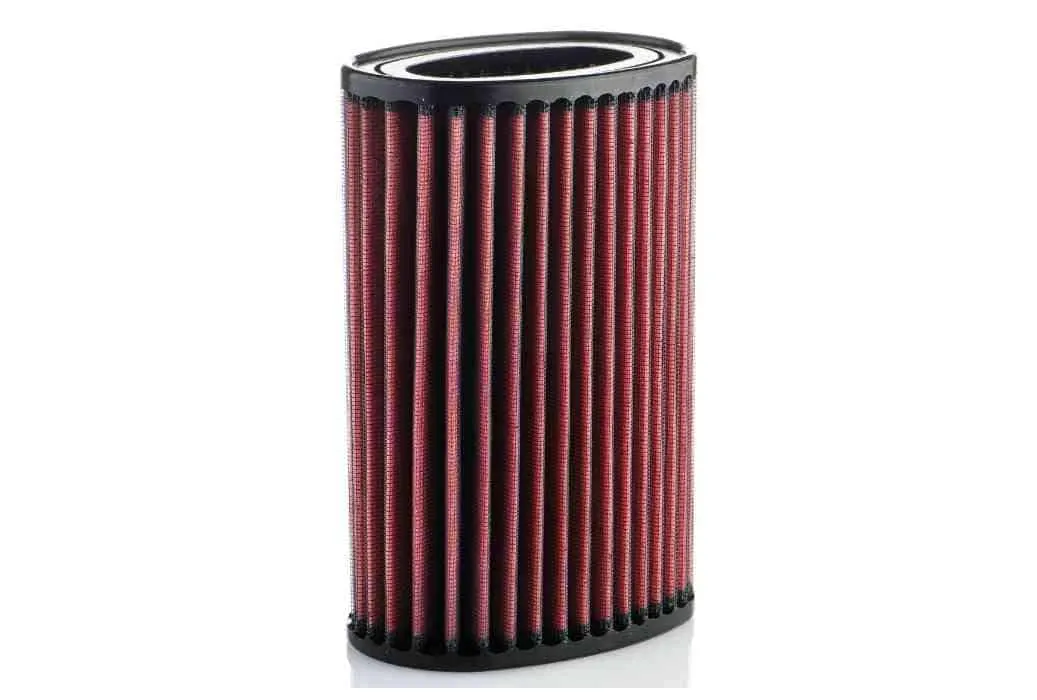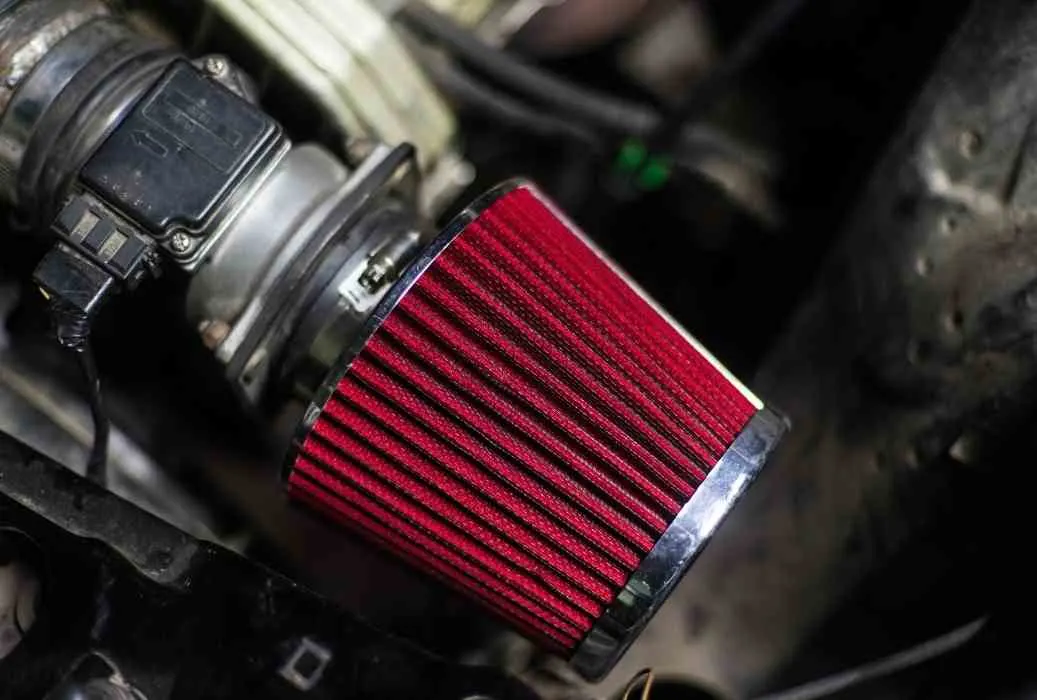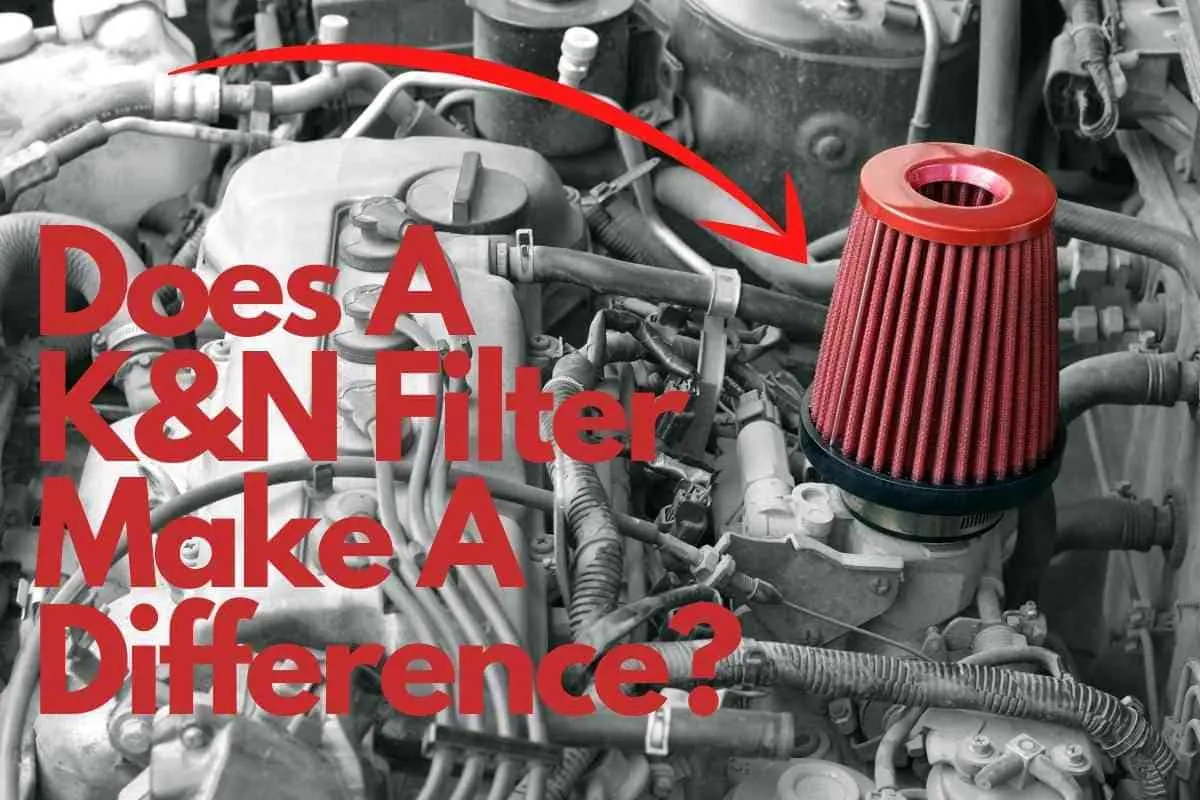If you’ve been in an auto parts store, you’ve probably seen high-performance filters. A lot of people wonder whether they actually do anything.
After testing them, it’s pretty obvious that something more is happening than with a regular filter, but what exactly does a K&N filter do differently?
K&N filters use depth-loading to provide filtration for your engine instead of barrier filtration like other filters use. Depth-loading filtration means that the pores in a K&N filter will not clog as quickly, allowing for more efficient filtration and a longer lifespan than regular air filters.
Barrier filtration is as simple as it sounds. Typical filters simply block particles, debris, and oil from passing through them.
And then once the filter blocks a particle, the pores get clogged with the particles that it blocked.
Since clogged pores don’t allow air to flow through them, you’ll notice a decrease in engine performance over time with regular filters.
High-performance air filters like the ones produced by K&N use modern technology to maximize your vehicle’s filtration.
If you’re curious how high-performance filters like the ones made by K&N work or if you’re on the fence about them being worth the extra cost, read on for all you need to know.
How Does a K&N Air Filter Work?

The principle behind K&N filters is depth loading. They use electrostatically charged materials to absorb particles from the air.
That leaves the pores open, even after they’ve cleaned the air. As such, you won’t notice a decrease in filtration efficiency. You can use them for longer, and they’ll still work well.
The particles don’t stick to the filter’s surface, leaving its pores open.
Filtering the air like this provides a better experience for drivers. They’ll notice a boost in their car’s performance. And, the filters won’t stop working.
Still, you’ve got to make sure they’re clean. Otherwise, they won’t be able to absorb more particles. Cleaning them is pretty easy, though.
K&N filters tend to provide more airflow than traditional ones. They’re also able to filter out up to 99% of particles in the air.
They’re tested using ISO 5011 protocols. That means they’re tested with large and small particles.
Both types of particles absorb with similar efficiency. So, it shouldn’t matter where you’re driving.
Regardless of where you go, they’ll filter the air well.
Why Does Airflow Matter to My Engine?
Airflow matters a lot for your engine. Most of the time, fuels don’t combust fully.
That’s because they’re not receiving sufficient air.
Fuel combusts when there’s enough oxygen for it to happen. Without enough, they’re not able to oxidize.
Providing more air to the engine is exactly how a turbocharger works. Superchargers work in the same way as well.
In all cases, they’re pushing more oxygen into the pistons. That improves your combustion efficiency.
The difference made by a high-flow filter isn’t comparable to a turbocharger, though.
You might notice about a 5% boost to your overall horsepower. That’s not really enough to tell when you’re behind the wheel.
But, that doesn’t mean it’s not a real difference.

Why Does Filtration Matter for My Engine?
Filtration efficiency also matters for your engine. Letting dirty air into it would clog up your mechanics. It won’t make a huge difference in the beginning.
But, over time, it’ll impact your engine’s lifespan.
Dirty engines must work harder to produce the same amount of power. And they’ve got a lot more friction inside while they’re on.
Clean engines don’t experience as much wear and tear.
As such, you’ll notice the engine works well for longer if you’re using a good filter. Filtering the air well makes sure it won’t have as many problems over time.
How Often Should I Clean My K&N Filter?
Just because they’re reusable doesn’t mean you shouldn’t clean them.
The more particles the filter absorbs, the less efficient it’ll become. Cleaning them isn’t too hard, though.
Simply take a can of air duster and spray them down. Peel the folds apart by hand while you’re doing this.
That makes it easier for the air to penetrate the filter’s material.
Do the same thing for both sides of the filter. You’ll remove more dirt from it that way.
Also, try smacking it on the ground a couple of times. Smacking it on the ground tends to remove larger particles stuck to the filter.
Will a K&N Filter Affect My Fuel Economy?
K&N doesn’t make any claims regarding fuel efficiency. However, our intuition tells us that’s simply them being modest.
A good filter helps to boost your horsepower, even just a little.
Like we mentioned, fuel needs sufficient oxygen to combust well.
Providing more oxygen to the fuel mixture boosts your horsepower as a result. And, it should also have an impact on your fuel economy.
When fuel doesn’t combust fully, you’re wasting some of it. Fully combusting the fuel means you’re getting more power without using as much fuel.
That should have an impact on your overall fuel economy.
So, it would make sense that a high-flow filter would boost your MPGs.
Will I Notice Increased Horsepower by Using a K&N Filter?
K&N doesn’t say anything about how their filters will impact your performance. But, some amateur motorists put them to the test.
Hooking up an engine to a dynamo lets you see how powerful they are.
That’s how we test the overall horsepower of an engine.
Testing an engine with a typical filter tells us how powerful it is in that condition. The amateur motorists tested an engine using a typical filter. Then, they did the same thing with a high-flow filter.
There was an actual difference of about 5 horsepower overall. That was an increase of about 4% for the engine in question.
So, it was a measurable difference. Although, it wasn’t a huge impact.
Why K&N Filters Really Do Make a Difference
K&N filters do make a difference in your engine’s performance. They’re able to do that by providing more oxygen to it.
And, they remove more particles from the air.
They let more air flow into the engine since they don’t use barrier blocking. That leaves more of their pores open while you’re driving.
So, you’ll notice better efficiency and power from your engine.
